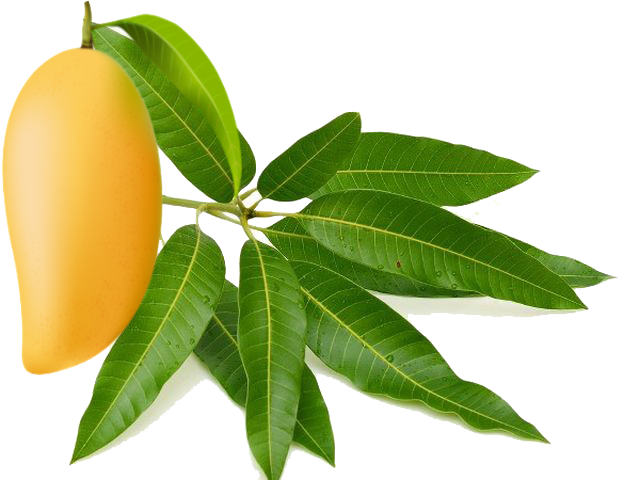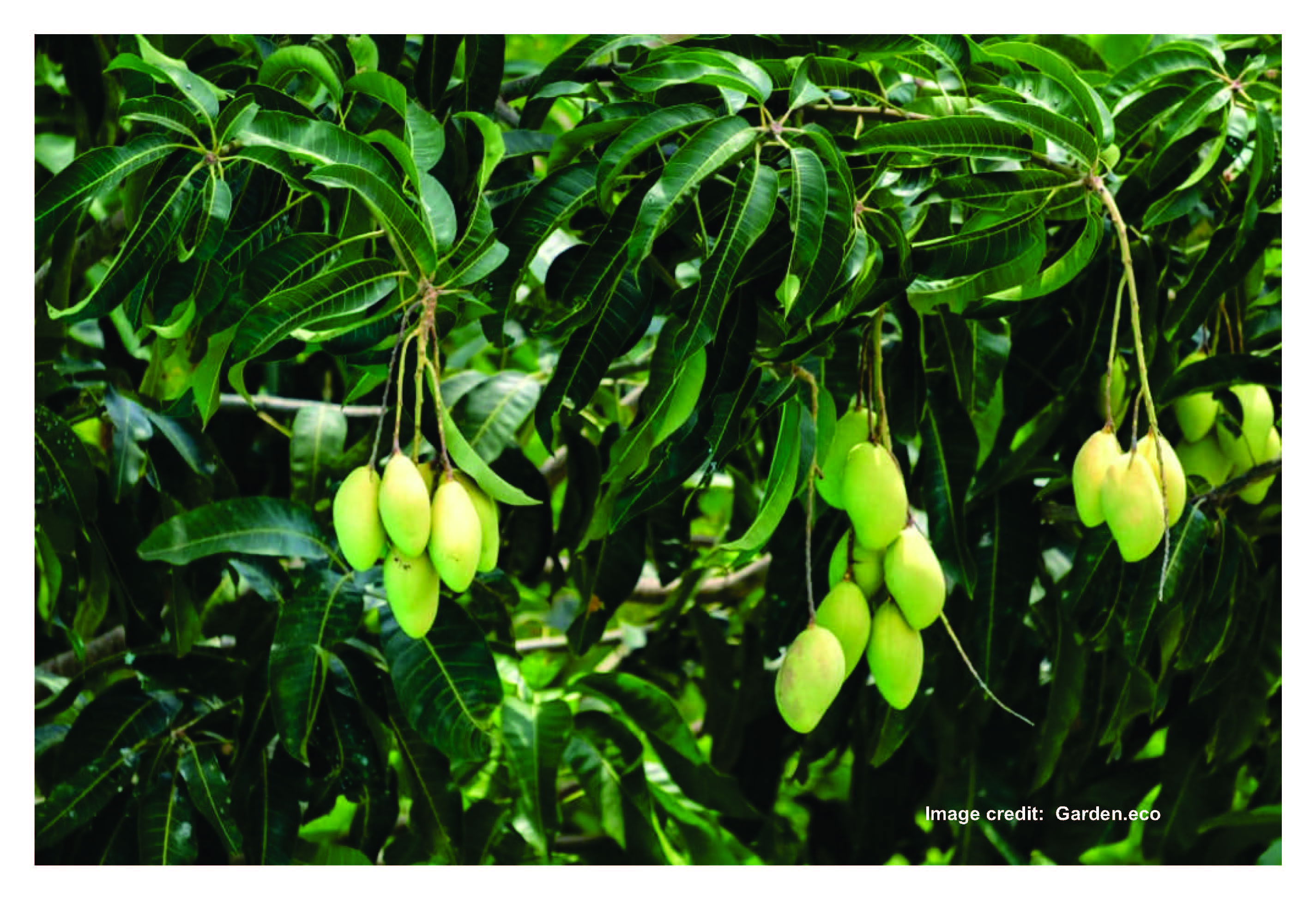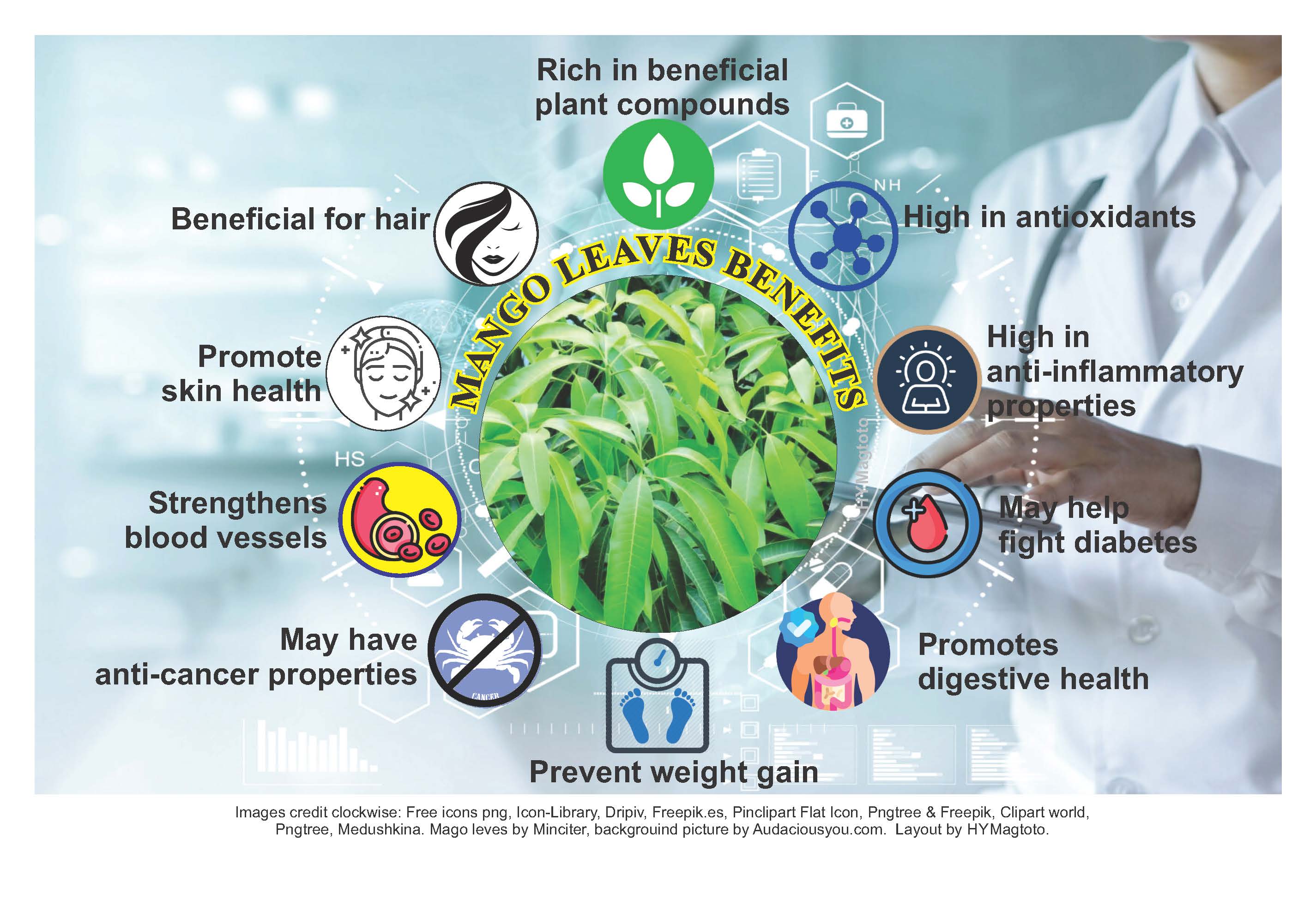Mango Leaf Peptide Zynamite

10 Emerging Benefits of Mango Leaves
Medical Author: Nazneen Memon, BHMS, PGDCR
Medical Reviewer: Pallavi Suyog Uttekar, MD

While most people are familiar with the sweet fruit of the mango tree, you may not be aware that mango leaves are edible too.
Mango leaves (scientifically known as Mangifera indica) belong to the Anacardiaceae family. They are reddish-green or purplish-green when young and grow darker green as they mature.
Mango leaf extracts have been used in traditional medicine to treat a wide range of diseases, including diabetes, bronchitis, diarrhea, asthma, scabies, respiratory problems, syphilis, and urinary disorders.
Here are 10 emerging benefits of mango leaves, backed by science. 10 benefits of mango leaves:

1. Rich in beneficial plant compounds
Mango leaves contain several beneficial plant compounds, including polyphenols and terpenoids. Polyphenols have antioxidant and anti-inflammatory properties, which help improve gut bacteria and treat or prevent conditions such as obesity, diabetes, heart disease, and cancer. Terpenoids are antioxidants that protect cells from harmful free radicals and play a key role in optimal vision and immune health. In addition, mango leaves are a potential source of minerals such as nitrogen, potassium, phosphorus, iron, sodium, calcium, magnesium, and vitamins such as A, B, E, and C.
2. High in antioxidants
Free radicals generated during the metabolic process contribute to various degenerative diseases such as acquired immunodeficiency syndrome, ischemic diseases, and neurological disorders. Mango leaves contain phenolics and flavonoids—antioxidants that help lessen the adverse effects of free radicals and prevent cellular damage.
3. High in anti-inflammatory properties
Chronic inflammation (a prolonged immune response) can increase the risk of various diseases including Alzheimer’s or Parkinson’s disease. According to one animal study, mango leaf extract has anti-inflammatory effects which may help counteract artificially induced oxidative and inflammatory biomarkers in the brain.
4. . May help fight diabetes
Animal studies suggest that the tender leaves of the mango tree contain phytochemicals and tannins called anthocyanidins, which can help treat high blood sugar levels.
The leaves contain a compound called 3beta-taraxerol and ethyl acetate extract that synergize with insulin to activate glucose transporter type 4 (gated channel in the cells that facilitates glucose movement in the cells) and stimulate the synthesis of glycogen. Due to these factors, mango leaves may help treat diabetic angiopathy and diabetic retinopathy.
5. Promotes digestive health
Regular intake of mango leaf infusion acts as a stomach tonic, flushing out toxins from the body and helping prevent various stomach ailments such as stomach ulcers and digestive disorders.
6. May have anti-cancer properties
Polyphenols present in mango leaves including gallotannins, phenolic acids, quercetin, and mangiferin exert chemo-preventive effects against various types of cancer due to their anti-inflammatory and antioxidant properties.
7. Prevent weight gain
Mango leaf extract contains mangiferin, a compound that helps activate higher levels of adiponectin. Adiponectin is a cell signaling protein that plays a role in fat metabolism and sugar regulation in the body. Multiple animal studies have reported that mango leaf extract inhibits fat accumulation in the tissue cells, thus helping manage obesity, diabetes, and metabolic syndrome.
8. Strengthens blood vessels
Mango leaves have hypotensive properties and help strengthen the blood vessels and treat varicose veins.
9. Promote skin health
Mango leaves have antioxidant properties that can combat signs of skin aging, increase collagen production, and promote wound healing. Mangiferin, a compound present in mango leaves, may also help treat psoriasis (a skin condition that causes itchy, dry patches).
10. Beneficial for hair
Because mango leaves are rich in antioxidants, they may help protect hair follicles from damage and promote hair growth.
All rights reserved. No part of this publication will be reproduced, stored in a retrieval system, or translated in any language in any form by means without permission of Herbert Y. Magtoto. The “AFC Biomedica USAl” is for informational purposes only. Information contained herein is NOT intended to be taken as medical advice. Sharing this information to your health practitioner is beneficial and practical. Stataements herein have not been evaluated by the Food & Drug Admin. The mango leaves are not intended to diagnose, cure, treat, or prevent any disease. (Source: MedicineNet, artical was medically reviewed on 9/8/2022)..